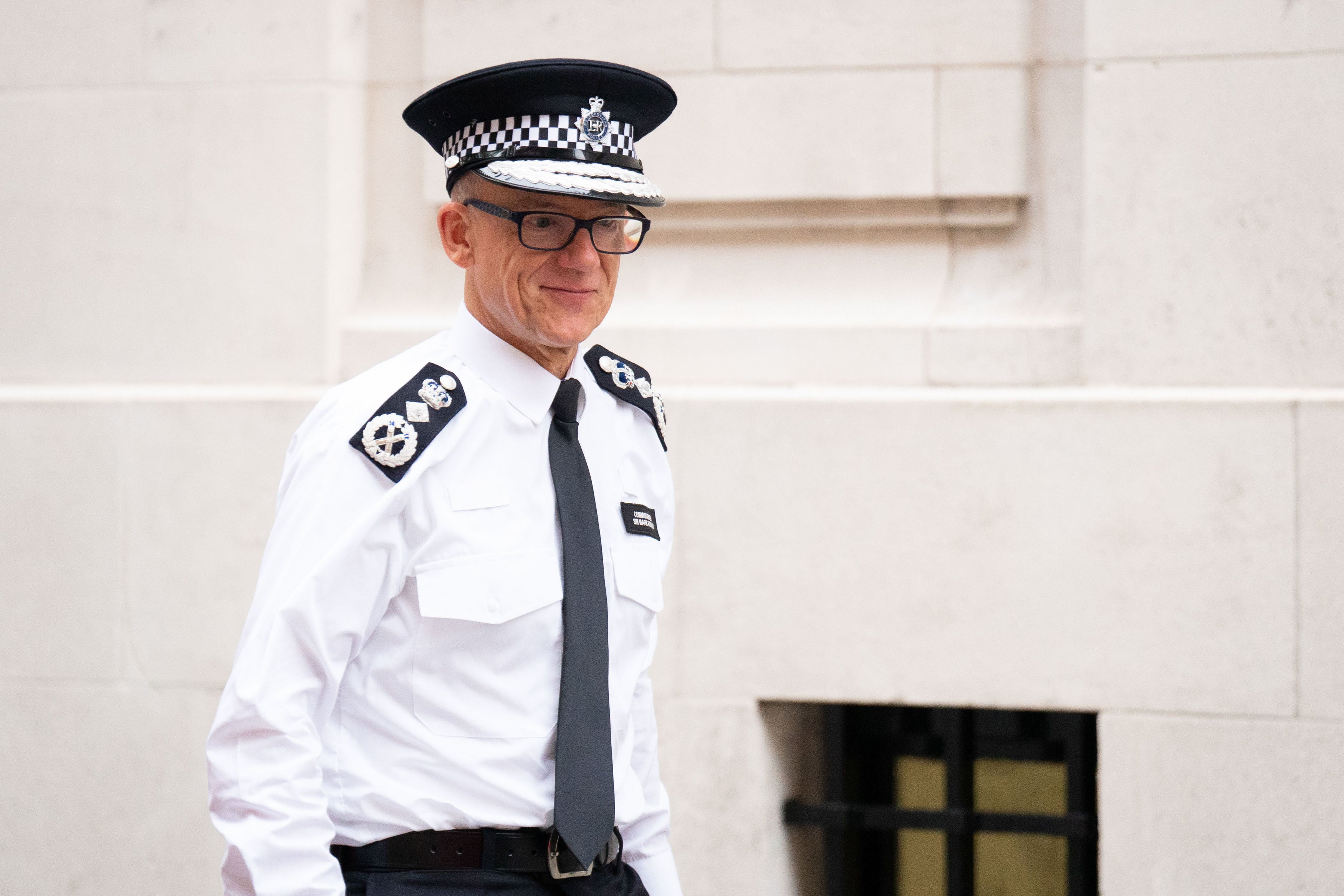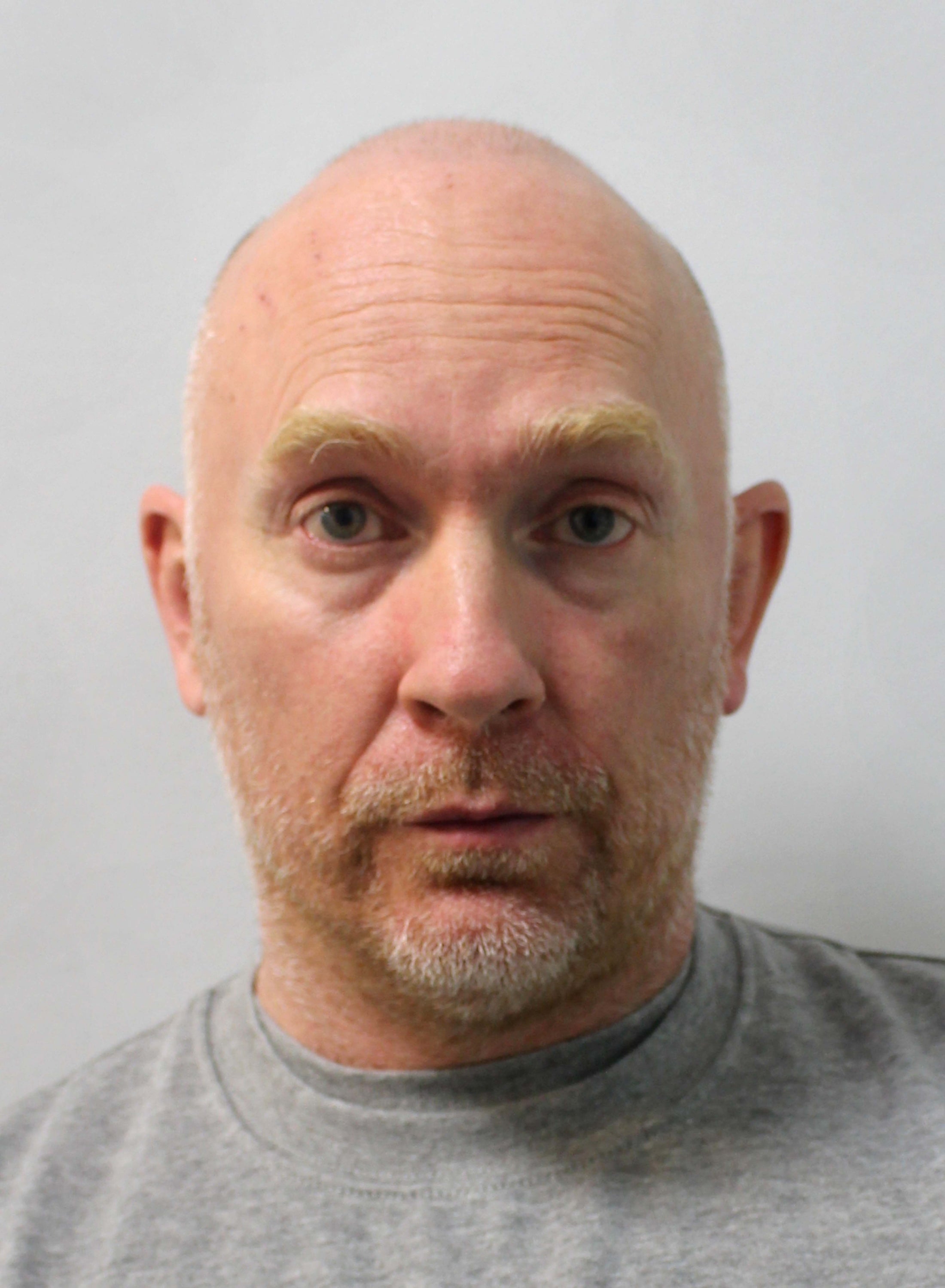Hundreds of Met Police officers should be sacked for racism and sexual assault, force’s chief admits
Casey review finds Britain’s biggest police force allowing criminals and serial rule-breakers to keep jobs
Hundreds of Metropolitan Police officers should be sacked, the head of Britain’s largest police force has said.
Sir Mark Rowley admitted his force is allowing criminals and serial rule-breakers to keep their jobs following a review of the culture and standards at the Met.
The long-awaited report laid bare the Met’s failure to root out officers facing serious misconduct allegations, including those of sexual assault and discrimination, and exposed racism and misogyny in the force’s internal disciplinary system.

Baroness Louise Casey, the report’s author, said the Met’s misconduct system “is not fit for purpose”, with a low number of dismissals causing frustration among staff and contributing to public mistrust of the force.
The bar for dismissal over gross misconduct is too high and the Met is unclear about what merits an unacceptable breach of professional standards, Dame Louise said, pointing to figures showing that less than 1 per cent of repeat offenders had been sacked between 2013 and 2022.
She added that cases take too long to be resolved, at an average of 400 days, with 20 per cent taking more than two years.
A sample case included in the report showed an officer was allowed to remain in post despite 11 misconduct cases being raised against him on allegations of abuse, sexual harassment, assault and fraud, among others.
Only 13 out of 1,809 officers and staff with more than one case against them since 2013 had been sacked. The report found more than 500 were involved in three to five cases and 41 were involved in six or more – the highest number being 19.
Dame Louise said: “There are times when I have looked at cases and wondered what exactly would constitute gross misconduct in order to get them out of the force.”

The report also included figures showing racial discrimination in the misconduct system, with black officers and staff 81 per cent more likely than their white colleagues to have cases brought against them in 2021-2022, and Asian officers 55 per cent more likely.
Elsewhere, Dame Louise found that allegations of discrimination and misogyny had less chance of being upheld than other accusations.
Metropolitan Police commissioner Sir Mark Rowley, who took up the role last month, said he was appalled by the findings and promised “radical reform” of the system.
Apologising to officers and members of the public who had been let down, he said the number of officers and staff being sacked each year, between around 30 and 50, nowhere near reflected the number that deserved to lose their job.
“You have to come to the conclusion there must be hundreds of people that shouldn’t be here, who should be thrown out,” Sir Mark said, repeating a call for the Home Office to give the Met commissioner final say on the dismissal of officers, as the current system is left to panels at misconduct hearings that can be overturned on appeal.
He told Dame Louise he accepted all of the conclusions in her report and admitted: “We’ve failed as an organisation to show zero-tolerance for racism, misogyny, homophobia and ableism.”

In a letter to Sir Mark accompanying the report, Dame Louise listed six key recommendations:
- To reduce the time taken for cases to be resolved
- To investigate and remove more repeat offenders
- To bring more offences, particularly relating to discrimination and sexual misconduct, within the remit of gross misconduct and dismissal
- To bring in more human resource expertise to support the misconduct process
- To review the use of rule, regulation 13, that allows probationers to be kicked off the force, which is far more likely to result in the dismissal of non-white officers
- To better support Professional Standards Units to effectively resolve more cases at a local level and to review and reduce the disproportionality throughout the system
Dame Louise was brought in to look at misconduct procedures and the culture within the Met after the murder of Sarah Everard by a serving officer, and a series of scandals around disturbing messages shared by officers on WhatsApp.
Her findings constitute an interim report of the review of culture within the Met, with full results to be published in the new year.
As the interim report was published, the Home Office announced a review of the systems to sack police officers, whether forces are using powers to dismiss probationary officers, and whether regulations governing the disciplinary system should be changed.
Home secretary Suella Braverman said: “The public rightly expects the highest standards of behaviour from police officers and the vast majority meet this expectation.
“But recently too many high-profile incidents and reports, especially in London, have damaged trust – which is unfair on the public and lets down other serving officers.”
Join our commenting forum
Join thought-provoking conversations, follow other Independent readers and see their replies
Comments


Bookmark popover
Removed from bookmarks